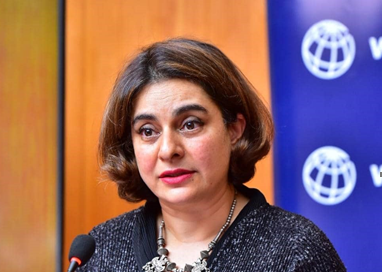Prime
The poverty of our collective imagination

Moses Khisa
What you need to know:
A whole group of members of Parliament from a sub-region took a most sectarian direction, trying too hard to show that the departed was theirs, not ours as a nation.
I wrote about the poverty of our politics two weeks ago. I need to back up, a bit. The problem is actually bigger. There is so much that goes into politics that is a reflection of society and culture. The political class is a product of the very society it inhabits and presides.
It is not so much that we are a materially poor society where many barely get along, the vast majority of our compatriots living appalling, needy lives. This is not in dispute. We are a materially poor country, no doubt. But society can manage its material inadequacies with grace and pride, decency and moral clarity. There is more to life than money and mansions, splendour and opulence.
Rather, it is that strictly speaking, those of us fortunate to live better and comfortable lives, financially and materially, are scarcely any different from the rest of society with regards to our moral standing and intellectual campus.
On the latter account, we are all collectively and resoundingly impoverished. In fact it’s arguable that on some critical issues, the wretched of earth and the presumed clueless, illiterate peasants wield the kind of wisdom otherwise glaringly lacking among those who are supposedly enlightened, the elite classes in politics, business, media and even academia.
The last few weeks have been as surreal as thoroughly revealing of our overall national psyche and sensibilities. A much-liked (among many circles, certainly not all) and a guy who, on a good day, was an honourable compatriot, Jacob Oulanyah, signed off rather tragically. God bless his soul.
Then a frenzy and stampede ensued. From theatrics to frivolous arguments. The tribalism of old, brazen and bold. We have heard and seen the pettiness of attacking a dead man. It’s cowardly and nonsensical.
Then the absurdity of displaying grandeur in death. The overzealousness of grieving more than the bereaved. Those assaulting the soul of a departed person and the crowd trying too hard on the opposite side of things are both engaged in similarly outrageous grandstanding.
Death should force a sober and thoughtful conversation, not careless arguments and unhinged assertions. A chief justice went on a rant, yes, someone occupying by far the most sacred and honourable public office in the land got into loose talk and gaffed.
A whole group of members of Parliament from a sub-region took a most sectarian direction, trying too hard to show that the departed was theirs, not ours as a nation. And the always predictable: financial scrambling and shameless attempt to grab a buck.
A budget to bury. We approach mourning as though it’s time to feast. Mourners have to be fed! Scandalous and unacceptable. No, mourning shouldn’t be an opportunity to inconvenience and place a burden on the grieving family and friends. It’s just wrong. Drop it, stop it, Uganda!
Oh, and the worst, the scampering to fill the man’s position, his body lifeless more than 10,000 kilometres away all in the name of respecting the Constitution. This is an absurd and laughable claim for a group of rulers known to bend the laws or out rightly disregard them out of convenience.
On Twitter, the Attorney General, often addressed as ‘the learned’, not too sure what that is actually intended to mean, reasoned that his legal advice can only be challenged in court. In characteristic arrogance and bravado, he shrugged off pushback by Mr Nicholas Opiyo. Was he asking for theatrical performances in the courts about a dead man and how to fill or not fill his office? Would the matter end up at the Supreme Court and before a deeply grieving chief justice?
At any rate, Oulanyah had been away from his office for long spells while his assistant carried on with normal parliamentary business. Why didn’t Parliament shutdown when the man had clinically crossed the point of no return to life even if he technically remained alive?
The reason there’s a Speaker and Deputy is precisely so the office remains functional even when one of the two office holders is absent. The rule here is not the person but the office. That is what constitutions and institutions are about. To try and literally, if narrowly, interpret a provision of the Constitution is a trifle disingenuous.
So much has been done and said in the name of Oulanyah, what he likely would have strongly scoffed at. A lot said to ridicule him when he can’t answer back, but if he had the chance he would perhaps have compassionately smiled and moved on. Yet, the passing of this one man has fully exposed the depths to which we have sunk as a nation, the sheer lack of imagination in times of adversity. We are a sick society. We can’t possibly get worse, oh well, actually we most likely can.




